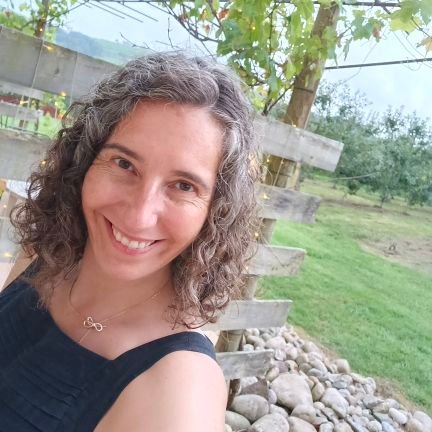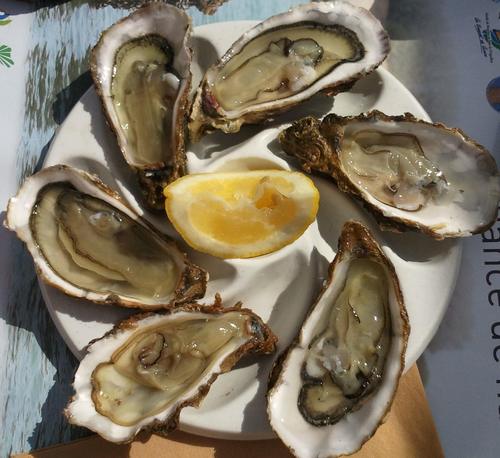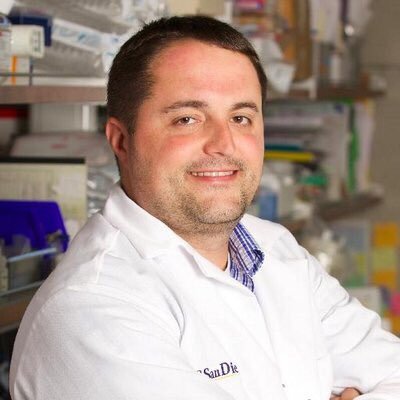
Massimiliano Berardi
@m4xbera
Followers
57
Following
694
Media
9
Statuses
63
taking a break from twitter lurking to hype up my new contribution to @Phys2BioMed: Together w/@kajangikanji, @lekka_lab we show how a fun new technique, Hydraulic Force Spectroscopy, fares against AFM for microrheology studies. (it fares well!) https://t.co/TnHiCQCr5e
pubs.rsc.org
The rheological characterization of soft suspended bodies, such as cells, organoids, or synthetic microstructures, is particularly challenging, even with state-of-the-art methods (e.g. atomic force...
2
0
11
Explore mechanical biomarkers in fibrosis research. Measure stiffness & viscoelasticity at scale. Access insightful resources: App Notes, White Papers & Case Studies await to enhance your research. Read more: https://t.co/dEOG8fIcZ6 Get in touch: https://t.co/S1TJBRsK18
0
1
0
Hi all, i am offering a 3-year PhD fellowship to work in my research group. Details in attachment. Please re-share!
1
4
7
🚀 Dive into the future of 3D cell culture with our #Webinar! Join Massimiliano Berardi & Dr. Giulia Pilia to see how the Pavone enhances research. Spots are limited—sign up now to not miss out! Register here: https://t.co/4DSLRbiEN9
0
1
1
Please RT. We are looking for a motivated PhD candidate to work on the biophysics of protein condensates with high-speed atomic force microscopy 👇🏾 @FM4B_Lab in collaboration with Mauro Modesti @crcm_marseille
@univamu @Insermpacacorse @AgenceRecherche
https://t.co/ZZUEbrbw49
3
58
76
Super excited to share our latest publication! We scoured all over for mathematical models involving the ECM and collated them in this review paper: https://t.co/2P9ZpLt4da
frontiersin.org
The extracellular matrix (ECM) is a highly complex structure through which biochemical and mechanical signals are transmitted. In processes of cell migration...
8
15
47
After a massive online effort with a great group of co-authors from around the globe, we now have a review article about the benefits and opportunities to use mathematical modelling to study the ECM. Pre-print available online now!! https://t.co/Q7l6lBffx9
arxiv.org
The extracellular matrix (ECM) is a highly complex structure through which biochemical and mechanical signals are transmitted. In processes of cell migration, the ECM also acts as a scaffold,...
1
15
40
‘Coupled mechanical mapping and interference contrast microscopy reveal viscoelastic and adhesion hallmarks of monocyte differentiation into macrophages’ by Felix Rico et al just went advanced! @mareroles @FM4B_Lab @felix_rico Check out the article here: https://t.co/Z5GtLlsR4x.
pubs.rsc.org
Monocytes activated by pro-inflammatory signals adhere to the vascular endothelium and migrate from the bloodstream to the tissue ultimately differentiating into macrophages. Cell mechanics and...
0
8
23
We are looking for research engineer in biology to work on cancer biophysics at @FM4B_Lab @Insermpacacorse @univamu in collaboration with @RamrayB Details 👇. Please, RT https://t.co/oYd6b8vTjp
0
9
13
We're preparing a @PhysiCell 1.13.0 release to go out tonight. Most importantly, it includes PhysiMeSS by @CicelyKrystyna, @vincentnoel72, and collaborators as an official addon for ECM modeling. #opensource @mathonco
2
14
52
Multiscale Rheology of Aging Cancer Spheroids https://t.co/C0k7NEcqCs
#biorxiv_biophys
0
2
4
We found that to have a full picture you need both nano/microscale approaches. Hopefully these results will be useful for other people :) The next step is to use this approach to estimate drug effect through the spheroid.
0
0
0
We found very strong heterogeneity, and layered properties that matched the structural characterisation We were also able to implement techniques used in optical coherence tomography, to infer the cellular activity/presence of necrotic core or ECM, at the same time.
1
0
0
In a rare moment of serendipity, we found we could implement the same framework used by civil engineer in pavement design :) We extend Hydraulic Force Spectroscopy to retrieve depth/time resolved displacement map, and model them as layered bodies
1
0
0
So, we went one step further, acknowledging the layered nature of these samples. Now, we just have to find a way to use this in the mechanical description.
1
0
0
We studied the rheology of spheroids ad the cellular and cluster scale, and their changes in time. We tried to link the mechanical properties across scales, and saw that that things are not quite straightforward
1
0
0
In what has probably been the most productive month of my life 😁 we were able to collect an incredible amount of data. Now, the first half of this work is out as a preprint: Multiscale Rheology of Cancer Spheroids https://t.co/NjpvwQpXbH What is it about?
1
0
2
A little more than a year ago I took the instrument I developed in my PhD and brought it to @lekka_lab to work with @kajangikanji, to work on the mechanical characterization of cancer spheroids 🧵
1
1
13
Thrilled to see my first work published as a first author in @nanoscale_rsc !! Do viscoelastic changes play a role in monocyte differentiation into macrophage? How do adhesion and cytoskeletal changes affect its immune response? 👀 https://t.co/ishT8ddRKj
3
9
58
Do cancer cells have memory? Yes, actually they do! In @MBoCjournal, we found that oral squamous cell carcinoma (OSCC) "learns" in the stiff tumor and then "recalls" their memories once in tumor adjacent stroma. https://t.co/7XZnLofxgP
#mechanobiology #CancerResearch
molbiolcell.org
Matrix stiffening is ubiquitous in solid tumors and can direct epithelial–mesenchymal transition (EMT) and cancer cell migration. Stiffened niche can even cause poorly invasive oral squamous cell...
5
25
131
The final version of our review on mechanical biomarkers is out and open access! Thanks to the JMR and @WileyGlobal for the great revision process. https://t.co/02M7v9BhEK
@felix_rico @FM4B_Lab
onlinelibrary.wiley.com
Mechanical biomarkers distinguish health conditions through quantitative mechanical measurements. The emergence and establishment of nanotechnology in the last decades have provided new tools to...
1
4
21













